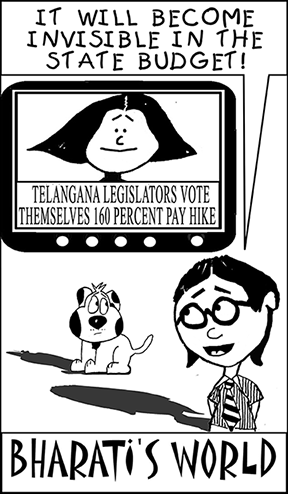Tamil Nadu: Uncertain reprieve
 THE MANAGEMENTS OF TAMIL NADU’S 580 CBSE (Central Board of Secondary Education) and 52 Council for the Indian School Certificate Examination (CISCE) schools got a respite on January 28 when the Supreme Court passed an interim order restraining the Justice S.R. Singaravelu Private Schools Fee Determination Committee (PSFDC) from interfering with tuition fees charged by CBSE and CISCE schools in the state. According to the apex court’s order, the powers of the PSFDC will be limited to verifying if the tuition fees levied by CBSE and CISCE schools are commensurate with the facilities provided by them, to hear complaints and recommend disaffiliation of schools charging exorbitant fees.
THE MANAGEMENTS OF TAMIL NADU’S 580 CBSE (Central Board of Secondary Education) and 52 Council for the Indian School Certificate Examination (CISCE) schools got a respite on January 28 when the Supreme Court passed an interim order restraining the Justice S.R. Singaravelu Private Schools Fee Determination Committee (PSFDC) from interfering with tuition fees charged by CBSE and CISCE schools in the state. According to the apex court’s order, the powers of the PSFDC will be limited to verifying if the tuition fees levied by CBSE and CISCE schools are commensurate with the facilities provided by them, to hear complaints and recommend disaffiliation of schools charging exorbitant fees.
The interim order has ended a three-year struggle by CBSE and CISCE schools for exemption from the ambit of the Tamil Nadu Schools Regulation of Collection of Fee (TNSRCF) Act, 2009, enacted by the erstwhile DMK government (2006-2011). Under the Act, the DMK government appointed the first Justice K. Govindarajan PSFDC in 2010 to determine the tuition fees chargeable by all 5,934 private unaided Matriculation schools (unique to Tamil Nadu) currently affiliated with the Tamil Nadu State Board of School Examinations (TNSBSE) and 5,000 private nurseries/primaries registered with the state’s Directorate of Elementary Education.
However, CBSE school managements challenged the state government’s presumption that the TNSRCF Act, 2009 is applicable to them because issuance of a NOC (no objection certificate) by the state government is a precondition of commencement of operations. In September 2012 when the Association of Managements of Private Schools (CBSE) challenged the applicability of the TNSRCF Act to CBSE schools in the Madras high court, the court ruled in the government’s favour.
In February 2013, the association filed an appeal in the Supreme Court where its counsel argued that since CBSE schools were separately mentioned in s.7 (3), which invested the committee with investigative and verification powers, the committee was not empowered to determine or regulate their tuition fees. Accepting the appellants’ argument, a Supreme Court bench passed an interim order on January 28 stating that: “The regulatory mechanism of the PSFDC will be limited (during the pendency of the present controversy) to the one contemplated under s. 7 (3) of the Tamil Nadu Schools (Regulation of Collection of Fees) Act, 2009.”
This ruling has been widely welcomed by CBSE school managements in the state which were struggling to meet expenses as the tuition fees prescribed by the PSFDC were inadequate to provide quality education. “Parent-teacher associations should jointly discuss and determine school tuition fees,” says C. Satish, director, Paavai Group of Schools, Namakkal.
Unsurprisingly, the state’s 5,934 private Matriculation schools, which provided high-quality K-12 education until they were deprived of their autonomy and brought within the purview of the common TNSBSE under the populist pretext of providing “equity in education”, feel left out of the CBSE/CISCE celebrations. Although several petitions were filed by private Matriculation school managements in the high court and Supreme Court opposing the poor-quality TNSBSE curriculum and challenging the PSFDC fixed tuition fee structure, the courts upheld the applicability of the TNSRCF Act, 2009 to them.
“With low tuition fees stipulated by the PSFDC, we can provide only basic facilities and can’t afford to introduce tech-enabled innovations in teaching or provide extra-curricular activities. Since teachers’ salaries are also determined by the PSFDC, we are unable to recruit well-qualified teachers,” says R. Visalakshi, president of the Tamil Nadu Private Schools’ Association.
The consequence of populist government interventions in the affairs of the state’s once-vaunted private Matriculation schools is that standards and learning outcomes have plunged. Typically, instead of raising teaching-learning standards in Tamil Nadu’s poorly-run 53,000 government schools, successive state governments have levelled down Matriculation and private school standards.
Fortunately, the state’s minority CBSE and CISCE schools, which have some pretensions of offering globally benchmarked primary-secondary education, have escaped these disastrous social engineering interventions. For the time being.
Hemalatha Raghupathi (Chennai)















Add comment